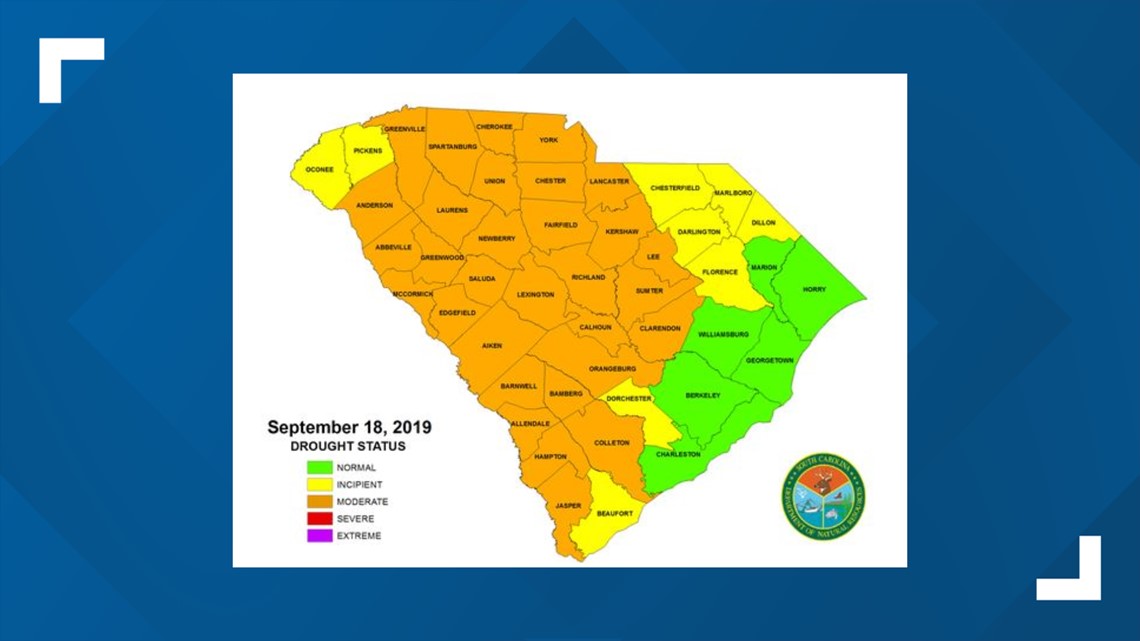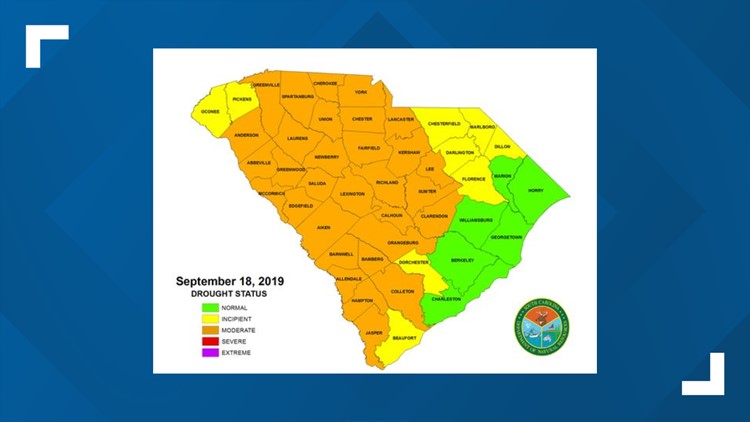RICHLAND COUNTY, S.C. — The South Carolina Drought Response Committee upgraded the drought status for 11 counties and downgraded the status for four counties in the state.
The total number of S.C. counties currently in a "moderate drought" are 31, and includes Richland County.
The committee made the decision on September 18 via conference call.
Beaufort, Chesterfield, Darlington, Dorchester, Florence, Oconee and Pickens counties were maintained in Incipient Drought. Marlboro and Dillon counties were downgraded from Moderate to Incipient.
Anderson, Cherokee, Colleton, Greenville, Hampton, Jasper, Kershaw, Lancaster, Lee, Spartanburg and York counties were upgraded from Incipient to Moderate Drought
Aiken, Abbeville, Allendale, Bamberg, Barnwell, Calhoun, Chester, Clarendon, Edgefield, Fairfield Greenwood, Laurens, Lexington, McCormick, Newberry, Orangeburg, Richland, Saluda, Sumter and Union counties were maintained at Moderate.


The drought declaration was removed from Georgetown, Horry, Marion and Williamsburg counties, and the “no drought” status was maintained in Berkeley and Charleston counties.
Hope Mizzell, S.C. State Climatologist, explained that while a few coastal counties received excessive rainfall from Hurricane Dorian, the rainfall totals significantly diminished inland.
Darryl Jones, Forest Protection Chief with S.C. Forestry Commission, is encouraging everyone to be careful burning because it will be much easier for fires to escape. He is expecting to see a more active fall fire season as larger fuels dry out and begin to burn.
There was significant discussion on the call on whether to move to Severe Drought due to the agricultural drought impacts in some counties.
Chris Toole, who farms in Orangeburg and Aiken counties, stressed that his farms have not received any measurable rainfall (less than one inch) in the last six to eight weeks.
John Irwin, retired Clemson University Extension Animal Scientist and Laurens County beef producer, said that the severe agricultural drought has damaged crops, endangered livestock, greatly reduced all forage yields; which has resulted in emergency hay feeding to livestock. Some pastures streams and ponds have also dried up, further endangering livestock. Hay supplies are dwindling on many upstate farms due to emergency feeding.
The Committee was concerned that moving to severe drought too soon may give a misconception on drinking water supplies and result in less compliance if the drought continues and water conservation measures are needed. There are no drinking water supply or quality problems right now.
According to SCDNR, The committee is continuing to monitor the weather and will meet again in the coming weeks.
More information about drought conditions and drought policy in South Carolina is available at www.scdrought.com.


